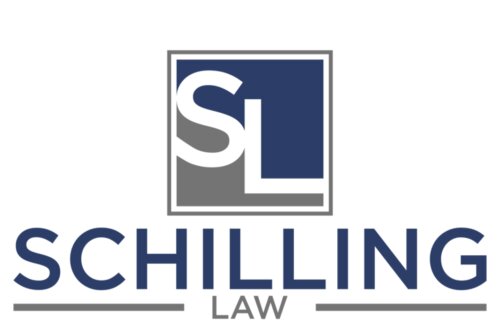Best Toxic Mold Lawyers in Kansas City
Share your needs with us, get contacted by law firms.
Free. Takes 2 min.
List of the best lawyers in Kansas City, United States
About Toxic Mold Law in Kansas City, United States:
Toxic mold, also known as black mold, can be a serious issue in homes and buildings in Kansas City, United States. Mold can cause a variety of health problems, including respiratory issues, allergies, and skin irritation. In some cases, property damage can occur due to mold growth. Laws in Kansas City address the responsibilities of property owners when it comes to preventing and remediating toxic mold.
Why You May Need a Lawyer:
If you are dealing with toxic mold in your rental property or home, you may need a lawyer to help you navigate the legal process. A lawyer can assist you in understanding your rights as a tenant or property owner, filing a lawsuit for damages, or negotiating with your landlord or insurance company.
Local Laws Overview:
In Kansas City, landlords are required to maintain rental properties in a safe and habitable condition, which includes addressing any mold issues. Tenants have the right to request mold remediation from their landlord. If the landlord fails to take action, tenants may have legal recourse through the court system. It is important to document the presence of mold and any communication with the landlord regarding the issue.
Frequently Asked Questions:
1. Can I sue my landlord for mold in my rental property?
Yes, you may be able to sue your landlord for damages related to toxic mold in your rental property. It is important to collect evidence of the mold and any communication with your landlord regarding the issue.
2. How can I prove that mold is toxic and harmful to my health?
You may need to hire a professional mold inspector to test the mold in your property and provide a report on its toxicity levels. This report can be used as evidence in a legal case.
3. What are the responsibilities of landlords when it comes to mold in rental properties?
Landlords are responsible for maintaining rental properties in a safe and habitable condition, which includes addressing any mold issues. They must promptly address any reports of mold from tenants.
4. Can my landlord evict me for reporting mold in the property?
No, your landlord cannot evict you for reporting mold in the property. Retaliation against a tenant for reporting a mold issue is illegal.
5. Can I withhold rent if my landlord fails to address mold in the property?
It is not advisable to withhold rent without legal guidance. You may need to follow specific procedures in order to protect your rights as a tenant.
6. How long do I have to file a lawsuit for damages related to toxic mold?
The statute of limitations for filing a lawsuit for damages related to toxic mold in Kansas City may vary. It is best to consult with a lawyer to determine the appropriate timeline for taking legal action.
7. Can I handle mold remediation on my own without involving my landlord?
It is recommended to involve your landlord in the mold remediation process, as they may be legally responsible for addressing the issue. However, if the landlord fails to take action, you may need to seek legal advice on how to proceed.
8. Will my homeowner's insurance cover damages related to toxic mold?
Homeowner's insurance policies may vary in coverage for damages related to toxic mold. It is recommended to review your policy or consult with your insurance provider to determine your coverage.
9. What should I do if I suspect mold growth in my property?
If you suspect mold growth in your property, you should report it to your landlord or property manager immediately. It is important to document the presence of mold through photos or videos.
10. How can a lawyer help me with a toxic mold case?
A lawyer can help you understand your legal rights, navigate the legal process, gather evidence, negotiate with involved parties, and represent you in court if necessary. They can provide valuable guidance and support throughout your toxic mold case.
Additional Resources:
For more information on toxic mold laws in Kansas City, you may contact the Kansas City Department of Public Health or the Kansas City Bar Association for legal referrals.
Next Steps:
If you are dealing with toxic mold in your property and require legal assistance, it is recommended to consult with a qualified lawyer who specializes in toxic mold cases. They can provide you with personalized advice and representation to help you protect your rights and seek damages for any losses incurred due to mold exposure.
Lawzana helps you find the best lawyers and law firms in Kansas City through a curated and pre-screened list of qualified legal professionals. Our platform offers rankings and detailed profiles of attorneys and law firms, allowing you to compare based on practice areas, including Toxic Mold, experience, and client feedback.
Each profile includes a description of the firm's areas of practice, client reviews, team members and partners, year of establishment, spoken languages, office locations, contact information, social media presence, and any published articles or resources. Most firms on our platform speak English and are experienced in both local and international legal matters.
Get a quote from top-rated law firms in Kansas City, United States — quickly, securely, and without unnecessary hassle.
Disclaimer:
The information provided on this page is for general informational purposes only and does not constitute legal advice. While we strive to ensure the accuracy and relevance of the content, legal information may change over time, and interpretations of the law can vary. You should always consult with a qualified legal professional for advice specific to your situation.
We disclaim all liability for actions taken or not taken based on the content of this page. If you believe any information is incorrect or outdated, please contact us, and we will review and update it where appropriate.









